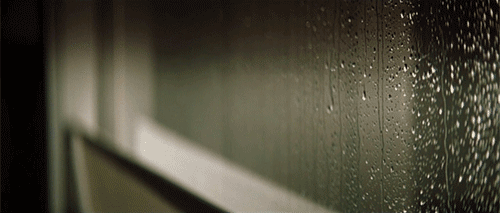One of the hottest stories this year has been the continuing decline of the newspaper industry. I’ve written about it in this space, and with the shuttering of the Rocky Mountain News, the Seattle P-I going to a completely online format, and more papers reducing coverage of their hometown teams, the current trend is not likely to change any time soon.
What does this mean for baseball coverage? Russell Adams and Tim Marchman presented a telling look at the industry in an April 7 Wall Street Journal article. Being a baseball reporter for a newspaper used to be a job people would kill for. Now it’s likely a job that will be killed.
With that in mind, I’ve begun asking numerous questions of veteran baseball writers and columnists to get their respective takes on the industry. This series of Q&As will run periodically throughout the season and beyond, as trends develop. The first is with Newsday’s Kat O’Brien, a Yankees beat writer since 2007. Prior to moving to New York, O’Brien covered the Texas Rangers for the Fort Worth Star-Telegram from 2003-06.
In her short time on the beat, O’Brien has witnessed the sweeping changes and cutbacks in the industry firsthand, and has decided to leave the beat to go to graduate school. The following exchange was conducted over a series of e-mails last week.
Will Weiss: What made you want to be a sportswriter? Even more specifically, what made you want to be on a beat?
Kat O’Brien: I never really set out to be a sportswriter. I was interested in writing and journalism, and sort of wound up in sports. I went to Notre Dame, and initially worked on both sports and news on the daily (Mon-Fri) student newspaper. That was too time-consuming, so I focused on sports, as it was a lot more fun and more-read among the students. For a long time, I thought I would switch back to newswriting, but I kept having great opportunities on the sports side and I enjoyed it. Doing a beat was kind of the natural progression. Baseball made sense as it was one of my favorite sports, and I also speak Spanish, which is useful in covering baseball.
WW: When and how did you use your Spanish? I’m curious, because I speak the language also and have written several anecdotes through the years about my adventures in the Dominican Republic, and with various Latino players in the Yankee clubhouse.
KOB: I double majored in Spanish in college after studying abroad. I’ve gone to the Dominican Republic a few times to do some baseball stories. I use it more on a day-to-day basis, both in interviewing players whose English skills are minimal (i.e. Melky Cabrera) and in talking to players who are comfortable in both languages (i.e. Mariano Rivera and Bobby Abreu). Even with the latter, I often find it helps build a rapport with players when they know you speak their language. It was huge with Alfonso Soriano when he got traded over to the Rangers, who I was covering at the time.
WW: Did anything specific happen to make you thinking about changing your career path?
KOB: It wasn’t any one thing but a combination of things. The writing jobs I had aspired to long-term, like writing takeout features and so on, barely exist anymore. I feel that there are other jobs I would enjoy doing and would be good at, and that this would be a good time to move in that direction. I’ll miss a lot about writing and covering baseball, particularly the relationships you form on the job. But this is the best move for me long-term.
WW: What changes in the industry have you witnessed in your time on the beat?
KOB: Wow, so many, and that is in just a few years. The Internet was not even a shadow of what it is now when I began. Now the Internet is priority No. 1, and it should be. The blogs have become extremely important, and most of those did not even exist when I started.
I also think there is a tendency towards more negativity and sensationalism, not necessarily on the beat, but in the media in general. This may be at least in part due to trying to compete with Internet sites, some of which are more gossip than news, but it’s not a good change in my opinion.
WW: Wikipedia founder Jimmy Wales said recently that newspapers should give up trying to compete (with Internet sites). In your opinion, are newspapers dead? If not, what would you do to try to revive them?
KOB: I really hope that newspapers are not dead or on life support. That said, things don’t look good for most papers at the moment. One thing that is crucial is finding a way to get revenue from the internet. One idea I like is that of getting as many papers as possible to join a consortium. Then a person could pay a subscription fee — say $10-20 per month — and get access to all those papers. Because it’s not realistic to think people are going to pay to read every paper they ever look at online, but papers need revenue.
But papers have to stop cutting costs so much that their best and brightest are either forced out or leave because they don’t think the quality of the product is worth sticking around and being a part of.
WW: You told me offline that given the current state of affairs, leaving the beat is the best decision for you and your future. Why?
KOB: Unfortunately, I am not at all confident about the future of newspapers. I’m sure there will always be some sort of journalism by which people get their news and information. But it’s been devastating to watch newspapers get torn apart in the last couple years, due partly to the failure of the industry to get on-board with the internet early and adapt, and partly to economic conditions.
I see so many colleagues who have been forced from their jobs, or who want to try something else but are constricted due to family considerations, children and mortgages. I am young enough that I can go back to school, so I am doing that while I can.
WW: While it may not be the case with the major New York papers, numerous papers around the country have cut costs by not sending writers to road games, etc., and in some cases local teams receive no hometown coverage at all. Is this a disservice?
KOB: It is a disservice, but unfortunately an unavoidable one right now. Many papers are barely surviving — slashing jobs and costs wherever they can. Local team coverage is one of those costs being cut.
WW: Is the philosophical divide between print and online generational?
KOB: I think there is somewhat of a generational divide between print and online. I see a bigger generational divide over blogging, though. That seems by and large to be more accepted among younger people.
WW: I remember that some of the beat writers who are staunch traditionalists resisted to the blog movement; not only that they were being required to post to blogs, but to the group of writers that has made a name through the blogosphere. What was your reaction to this, and what’s your opinion of baseball writing on the web? Who do you read now and how do you see baseball reporting growing?
KOB: I think there is a place for all sorts of baseball coverage, both traditional and of the blog variety. I think the web permits a much broader amount of coverage. There’s a long list of blogs that I follow. But an example of the different types of writing would be in three of the Yankees blogs I read most often: RiverAveBlues, BronxBanter and WasWatching. All three do a great job of keeping up with Yankees stuff, but each has a different slant/angle. Each site has its favorites and its least favorites on the team, and each provides a different writing style.
Still, there can be a danger in losing sight of the fact that the blogs don’t necessarily provide the same information as the traditional newspapers/sites since many are giving opinion or compiling information instead of doing reporting themselves. I am not saying this in any “anti-blog” fashion, just that I think both are necessary.
WW: Thanks for the compliments and for following us here at BB. What, if anything, could both the blog sites and the newspapers do better to coexist?
KOB: Probably give each other a little more credit where credit is due. Not in all cases, but there are definitely some snarky comments from one side to the other, and vice versa.
WW: What will you miss most about the beat? The least?
KOB: Most: A number of things. Being there to get the story firsthand, the story that people are talking about and reading about and you are giving it to them. Writing for a large and passionate audience. And I’ll especially miss the people — the other writers and the people I am writing about such as players, coaches, managers, GMs, and behind-the-scenes folks.
Least: Witnessing and worrying about the constant decline in the newspaper industry. And it might be nice to have a somewhat more normal schedule, with less travel and more nights and weekends off.
WW: What’s next for you? Do you see yourself eventually getting back into sport media, or editorial?
KOB: I’m going back to school. I start a dual degree program at the University of Pennsylvania next month, getting a Wharton MBA and a Masters of Arts in International Studies from the Lauder Institute. I don’t envision myself getting back into sports media or editorial on a full-time basis. I would love to keep my hand in by doing free-lance writing. After I graduate I might get involved in the business side of sports, but that’s yet to be determined. I’ll miss sportswriting and all my friends in the biz, though.










